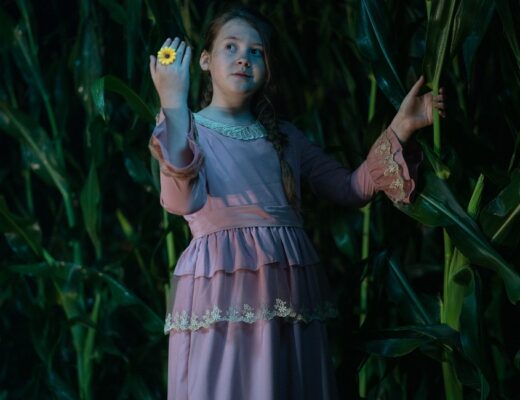In 1964, the Brazilian Armed Forces — with support from the United States government — took up measures to overthrow democratically elected leaders of Brazil, including President João Goulart and Miguel Arraes, governor of Pernambucan. This military dictatorship would go on to arrest, torture, and ‘disappear’ activists operating throughout the country. One such group, used by conservative forces as proof of an increasing communist influence, was the Ligas Camponesas, an organization based in the northeast of the country, and who fought for agrarian reforms and labor rights. The organization, who met their violent end with the installment of the new regime, had used the cultural symbol of the cangaceiro (social bandits of the semi-arid sertão who were killed off during the 1930s) as a revolutionary symbol of resistance against landowners and the latifúndio system, rousing the peasants of the sertão to take action against their exploiters. Glauber Rocha would make use of the cangaceirotoo; in Black God, White Devil, they appear alongside other spatio-historical references that work in order to exhume the restless spirits that still linger amid the caatinga, giving them a new light within the cinema. Having been released only a few months following the coup, Rocha’s film takes on an opportune edge that re-establishes the words and actions of the Ligas Camponesas, in the style of a parable, apposite for the Cinema Novo movement developing at the time. Rocha and his contemporaries would overturn the old genres of Brazilian cinema and shine a light on the hunger of the working class, to reveal the fatalism forced upon them by their oppressors. At this point, violence becomes the only response to exploitation, for “the moment of violence is the moment when the colonizer becomes aware of the existence of the colonised.”
Having been released only a few months following the coup, Rocha’s film takes on an opportune edge that re-establishes the words and actions of the Ligas Camponesas, in the style of a parable, apposite for the Cinema Novo movement developing at the time.
Black God, White Devil begins with the ranch hand Manuel (Geraldo Del Rey) killing his boss in a fit of rage after having been cheated out of some of his wages. Manuel and his wife, Rosa (Yoná Magalhães), soon embark on a journey across the sertão, first joining a messianic preacher and his cult before leaving again to find refuge with the last of the cangaceiro. Rocha’s film is divided into two distinct segments: the first half, which is replete with disorienting camera movements and shot compositions that confuse our awareness of the surroundings amidst the babble of a cult, and the contrasting second half, where the blocking of actors becomes carefully determined in an overactive frame for more of an analytical effect, working against the earlier scenes through their Brechtian distanciation and monologues delivered to confront the audience. The “Black God” of the film’s English title refers to the cult leader, Sebastião (Lidio Silva), who seemingly serves as a reference to the War of Canudos and its central figure, Antônio Conselheiro, who led a rebellion against the government in the 1890s which ultimately resulted in his cult’s crushing defeat. In nominal opposition is the “White Devil,” Corisco (Othon Bastos), a surviving member of the cangaceiro through whom the ghost of Lampião (Brazil’s equivalent of Jesse James) interjects as a symbol of revolt against underdevelopment. Both of these figures, though, are murdered by the hired killer Antonio das Mortes (Maurício do Valle), who acts as the hand of both church and state, disposing of the region’s icons of primordial resistance against exploitation to show them as little more than the last vestiges of a bygone era — crushed by the solidifying republic. Manuel continues to run, fleeing once again in his protracted search for justice, while the final words of Corisco — “Power to the people” — ring out, as a realization of their only hope.
Part of Kicking the Canon – The Film Canon.







